
Louise Beavers was an American film and television actress who appeared in dozens of films and two hit television shows from the 1920s to 1960. She played a prominent role in advancing the lives of Black Americans through her work and collaborated with fellow advocates to improve the social standing and media image of the Black population.
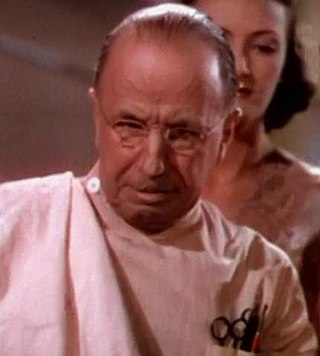
Arthur Hoyt was an American film character actor who appeared in more than 275 films in his 34-year film career, about a third of them silent films.
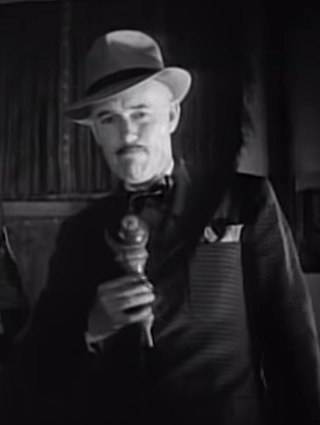
Charles D. Brown was an American stage and film actor.

Dixiana (1930) is a lavish American pre-Code comedy, musical film directed by Luther Reed and produced and distributed by RKO Radio Pictures. The final twenty minutes of the picture were photographed in Technicolor. The film stars Bebe Daniels, Everett Marshall, Bert Wheeler, Robert Woolsey, Joseph Cawthorn, Jobyna Howland, Ralf Harolde, Bill "Bojangles" Robinson and Dorothy Lee. The script was adapted by Luther Reed from a story by Anne Caldwell.

Peter Paul Fix was an American film and television character actor who was best known for his work in Westerns. Fix appeared in more than 100 movies and dozens of television shows over a 56-year career between 1925 and 1981. Fix portrayed Marshal Micah Torrance, opposite Chuck Connors's character in The Rifleman from 1958 to 1963. He later appeared with Connors in the 1966 Western film Ride Beyond Vengeance.

Murdock MacQuarrie was an American silent film actor and director. His name was also seen as Murdock McQuarrie.
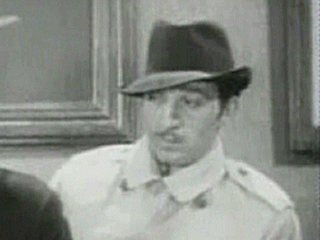
The Stolen Jools is a 1931 American pre-Code comedy short produced by the Masquers Club of Hollywood, featuring many cameo appearances by film stars of the day. The stars appeared in the film, distributed by Paramount Pictures, to raise funds for the National Vaudeville Artists Tuberculosis Sanitarium. The UCLA Film and Television Archive entry for this film says—as do the credits—that the film was co-sponsored by Chesterfield cigarettes to support the "fine work" of the NVA sanitarium.

Wheeler Oakman was an American film actor.

Dorothy Lee was an American actress and comedian during the 1930s. She appeared in 28 films, usually appearing alongside the comedy team of Bert Wheeler and Robert Woolsey.
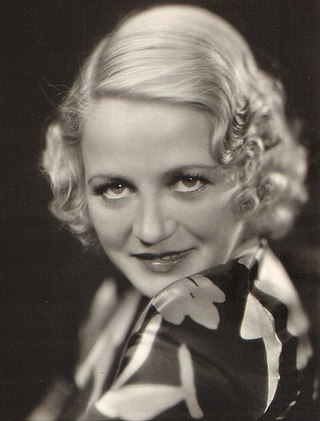
Winifred Elaine "Wynne" Gibson was an American actress of the 1930s.

The Adventures of Tom Sawyer is a 1938 American drama film produced by David O. Selznick and directed by Norman Taurog who had previously directed Huckleberry Finn (1931) with Jackie Coogan and Junior Durkin. The film starred Tommy Kelly in the title role, with Jackie Moran and Ann Gillis. The screenplay by John V. A. Weaver was based on the classic 1876 novel of the same name by Mark Twain. The movie was the first film version of the novel to be made in color.

Astrid Allwyn was an American stage and film actress.

Selmer Adolf Jackson was an American stage film and television actor. He appeared in nearly 400 films between 1921 and 1963. His name was sometimes spelled Selmar Jackson.

Girl Crazy is a 1932 American pre-Code musical film adaptation of the 1930 stage play of the same name. The film was very unlike the stage play except for its score. It was tailored for the comic talents of Wheeler & Woolsey, a popular comedy team of the time. Three songs written by George and Ira Gershwin for the play were retained: "Bidin' My Time", "I Got Rhythm", and "But Not for Me". According to RKO records, the film lost $150,000. Lon Chaney Jr. appears in the film (uncredited) as a dancer in the chorus.
John Wray was an American character actor of stage and screen.

Leonard Carey was an English character actor who very often played butlers in Hollywood films of the 1930s, 1940s and 1950s. He was also active in television during the 1950s. He is perhaps best known for his role as the beach hermit, Ben, in Alfred Hitchcock's Rebecca (1940).

Zelma O'Neal was an American actress, singer, and dancer in the 1920s and 1930s. She appeared on Broadway and in early sound films, including the Paramount Pictures films Paramount on Parade and Follow Thru.

Joseph Bridger Cawthorn was an American stage and film comic actor.
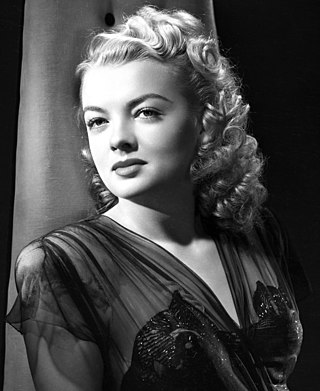
Myrna Dell was an American actress, model, and writer who appeared in numerous motion pictures and television programs over four decades. A Hollywood glamour girl in the early part of her career, she is best known today for her work in B-pictures, particularly film noir thrillers and Westerns.

Josephine Whittell was an American character actress of silent and sound films.




















